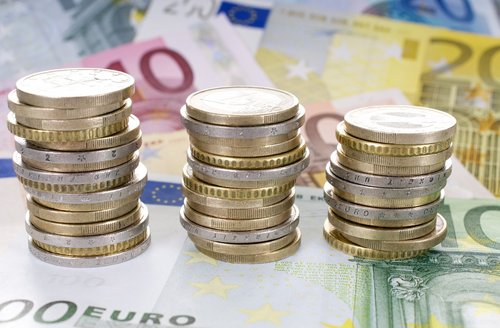IW-Direktor Michael Hüther erklärt im Magazin "The International Economy", dass Deutschlands Erfolg als Exportnation nicht auf einer Manipulation des Euro-Kurses fußt.

Germany Is Not Manipulating the Euro
At first glance, Clyde Prestowitz offers an exciting thesis: Germany is manipulating the euro in order to improve its own competitiveness and export performance at the expense of its partners in the euro zone. On closer inspection, however, his main arguments turn out to be old wine in new bottles. Since the beginning of the sovereign debt crisis over three years ago it has repeatedly been argued that the current problems of the European Monetary Union are rooted in Germany. In this view, Germany’s high export surplus makes clear that national economic policy under the terms of a common currency is misleading. German wage moderation has damaged the other European economies. Prestowitz adds to this traditional wage policy argument the claim that the German rejection of euro bonds and an effective European Banking Authority stands at the core of its currency manipulation.
What to make of these arguments?
First of all, the fact that since 2010 we have seen very different government bond interest rates in the euro zone is no evidence of a malfunction of the single currency or even a currency manipulation. On the contrary, rate variation is logical and healthy as long as government securities in the currency union are subject to different solvency risks. The previous almost complete convergence of interest rates was wrong, misleading and caused a significant misallocation of capital in the countries of the southern periphery. Of course, there were excesses in government bond spreads as long as the dissolution of the monetary union was a real risk for international institutional investors. The ECB was able to correct these excesses by announcing the OMT program last summer, so that interest rates again reflect reasonable and fair market valuations – assuming that the currency union continues.
Second, the subsidizing of German exports by the euro exchange rate is of far less importance than has always been claimed. Rather, the global investment boom that began more than a decade ago favored economies that produce capital goods. The German trade and current account surplus thus results mainly from the sale of capital goods, which in turn stems from Germany’s traditional emphasis on manufacturing. The German ratio of exports to GDP has doubled since the mid-1990s to reach a current 50 percent. The history of the German export boom thus began long before the introduction of the euro.
The historical development of a country’s economic structure determines whether it can satisfy a particular foreign demand. Essentially, Germany's export strength can only be truly understood from a historical perspective. There are two interesting aspects here. On the one hand, a comparison with France shows that early events –here we are talking largely about the first half of the nineteenth century– have had long-lasting effects, with France never making up for the disadvantage of its late industrialization. On the other hand, a comparison with the United Kingdom, which after the Second World War experienced massive de-industrialization, makes clear that losses incurred during structural change may be irreversible.
Moreover, Germany is a good example of the fact that a specific current account status - whether surplus or deficit - need not be permanent. During the second half of the 1990s investment activity stagnated worldwide, leaving Germany with a correspondingly low trade surplus and a current account which was actually negative. The decline in investment activity in Europe is currently working in this direction.
Criticism of Germany’s export strength is also misleading because it ignores other compensatory mechanisms: Germany’s position as a net contributor to the EU and its net capital exports. The international movement of capital can only develop its productive effect if risk assessment is not distorted by a European transfer union or a bailout promise.
Third, the German business model –with high importance accorded to manufacturing, a close relationship between industry and the service sector and a strong focus on exports – is not a vision for the other European economies. Any plan to make it one will certainly not work. But the crisis countries in the European South will have to correct the mistakes of the last decade – ill-advised investments, over-consumption and unsustainable public finances. And this will inevitably require a phase of austerity. In the medium term, however, there can be stable positions even with current account deficits if stable and appropriate supply side conditions ensure a net capital inflow.
Finally, the German government is not against effective European banking supervision, but it does call for it to be given a contractual basis. The creation of banking supervision under the auspices of the ECB jeopardizes the latter’s independence. This can and should be prevented by the establishment of a separate and independent organization. On the other hand, the German government certainly rejects euro bonds - and for good reason. With popular sovereignty still anchored at the national level, the necessary democratic and parliamentary basis in Europe is lacking. A fiscal union of nation states can be created only through clear and binding rules for budget preparation (European Semester) and the national debt (six pack, fiscal compact, two pack) for which national parliaments retain responsibility and democratic legitimacy. Euro bonds would lead to a debt union, violating the no-bail-out clause and creating a strong incentive for mutual exploitation. The European Stabilization Mechanism, which involves the European partners consistently in accordance with the Treaties and the economic rationale, is the appropriate instrument for coping with any new crisis.

Heimische Förderung sorgt für mehr Versorgungssicherheit
In der Frankfurter Allgemeinen analysiert IW-Geschäftsführer Hubertus Bardt die Versorgungssicherheit in Deutschland. Er geht der Frage nach, welchen Beitrag zur Unabhängigkeit die heimische Gasförderung leisten könnte.
IW
Bauch schlägt Kopf
Warum es den Deutschen zu gut geht und der Wohlstand gefährdet ist – mit dieser Frage beschäftigt sich IW-Kommunikationsleiter Knut Bergmann in einem Gastbeitrag für Die Politische Meinung, einer Zeitschrift der CDU-nahen Konrad-Adenauer-Stiftung.
IW